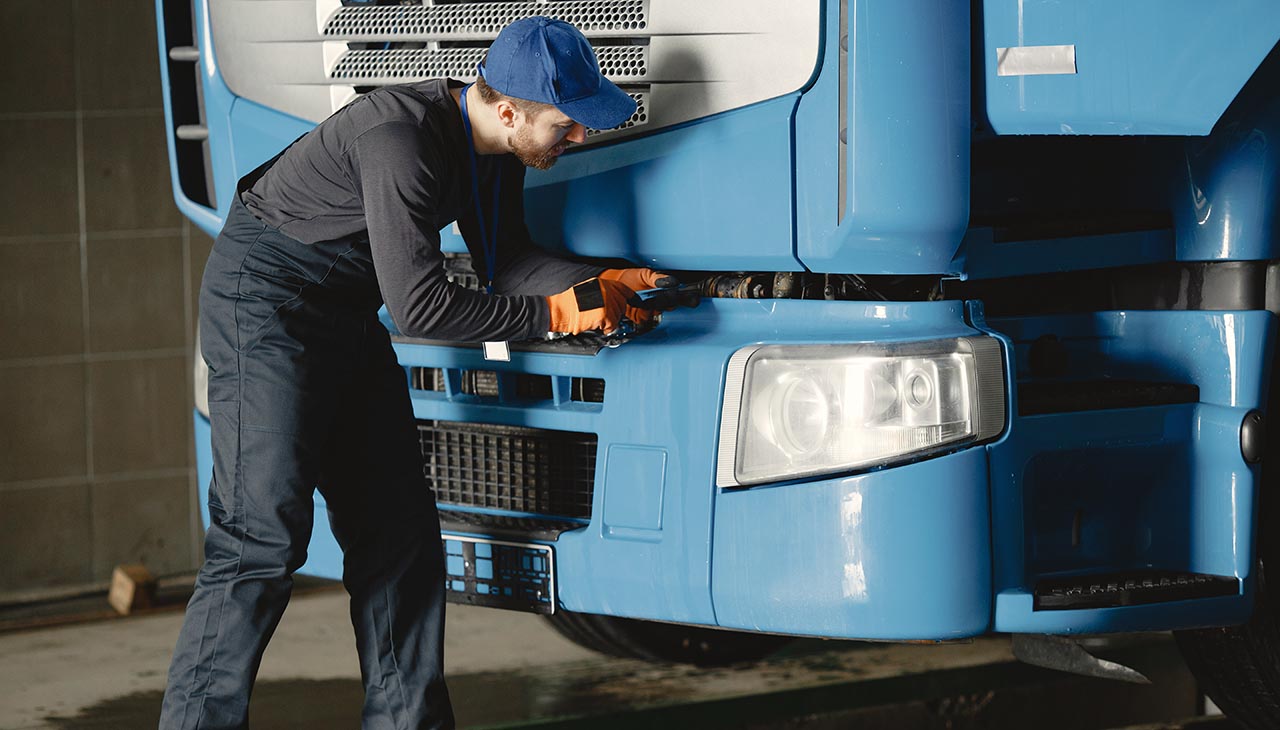Long-haul trucking is a demanding profession that requires not only skill in handling a vehicle but also an acute awareness of safety protocols to protect oneself and others on the road. Before embarking on their arduous journeys, truck drivers must perform rigorous safety checks to ensure that both their truck and trailer are in optimal condition. This encompasses a thorough inspection of mechanical systems, cargo security, and emergency equipments. The importance of these safety checks cannot be overstated; they are the bulwark against potential mishaps that can have serious consequences. In the following sections, we will discuss the essential safety checks in detail, offering a comprehensive guide to long-haul truck drivers striving for safe travel.
Pre-Departure Checks
Tire Inspection
Every long-haul journey begins with a meticulous tire inspection. Tires are the foundation of on-road safety, and ensuring they are free of wear and damage is critical. Drivers should check for adequate tread depth, signs of uneven wear, and proper inflation, according to the manufacturer’s specifications. Bulges, cuts, or cracks in the sidewalls are red flags that require immediate attention to prevent blowouts or flats that could lead to dangerous situations on the highway.
Brake System Check
Next, a comprehensive evaluation of the braking system is indispensable. This entails examining the brake pads for wear, ensuring there is no leaking fluid, and testing the parking brake for reliability. Any abnormalities in brake responsiveness or strange noises during operation should be investigated and rectified before departure.
Fluid Levels
Maintaining optimal fluid levels is vital for the smooth operation of the truck. This includes engine oil, transmission fluid, coolant, power steering fluid, and windshield washer fluid. Adequate fluid levels prevent mechanical failures and overheating—common issues that can cause delays and accidents.
Lights and Signals
Finally, a systematic check of lights and signals cannot be neglected. Headlights, tail lights, brake lights, turn signals, and emergency flashers must be in working order. This ensures clear communication with other road users, especially during low visibility conditions or at night. Faulty lights not only reduce the driver’s ability to see and be seen, but they are also a violation of traffic laws, potentially leading to fines and increased scrutiny from road authorities.
On-the-Road Checks
Regular Rest Breaks
Once on the road, it’s essential for long-haul truck drivers to take regular rest breaks. These pauses are crucial not just for maintaining alertness but also for giving an opportunity to perform quick inspections of the truck. Federal regulations often mandate these breaks to ensure drivers are not overworked, which could lead to diminished reaction times and increased risk of accidents.
Monitoring Fatigue Levels
Monitoring fatigue levels is equally important. Drivers should be acutely aware of the signs of fatigue, which can severely impair driving ability. Techniques such as listening to engaging audio, maintaining a comfortable cabin temperature, or even mild physical exercise during breaks can help mitigate tiredness.
Vehicle Condition Check During Stops
Each stop is an opportunity to conduct a brief vehicle condition check. This includes verifying that cargo is secure, rechecking fluid levels, ensuring lights and signals are functional, and giving a once-over for any new signs of tire or brake wear. Being vigilant about these checks can prevent mechanical issues or safety hazards from escalating as the journey progresses.
Adverse Weather Preparedness
Preparing for adverse weather is critical for long-haul truck drivers, as conditions like rain, snow, ice, fog, and high winds have a significant impact on driving safety and cargo integrity. It is vital for drivers to stay updated on weather forecasts before and during their journey. Utilizing real-time weather apps and listening to local radio broadcasts for weather updates can help drivers anticipate and prepare for the challenges ahead. In addition to technological assistance, drivers should be equipped with the essential skills and knowledge to handle their vehicles during various adverse weather conditions. This includes understanding how to adjust speed appropriately, maintain a greater following distance, and use defensive driving techniques to prevent accidents. Furthermore, having the right equipment, such as tire chains for snow and ice, and ensuring that defrosters and wipers are in good working condition, can aid in navigating through difficult weather safely. Being informed and prepared not only reduces the likelihood of delays or accidents but also ensures the driver’s well-being and the security of the cargo being transported.
Cargo Safety Checks
Securing the Cargo
Prior to departure, ensuring that cargo is properly secured is a vital safety step for every long-haul truck driver. Securing cargo prevents it from moving around during transport, which can destabilize the truck and increase the risk of accidents. Drivers should use appropriate restraints such as ropes, straps, chains, and shoring bars, and follow industry standards and regulations to ensure that the load is secured in alignment with its size, shape, and weight.
Weight Distribution
Proper weight distribution is crucial for maintaining vehicle balance and stability. The cargo should be evenly distributed throughout the trailer, with heavier items placed low and centered between the axles. Good weight distribution contributes to easier handling of the truck, more efficient fuel consumption, and reduced strain on the vehicle’s structure, axles, and tires.
Monitoring Cargo Condition During Stops
During each stop, drivers should also recheck the condition of their cargo. This may involve inspecting for any shifts in the load, potential damage to the cargo or securing equipment, and the integrity of the trailer doors and locks. Vigilant monitoring at each stop will ensure that the cargo remains secure and undisturbed throughout the duration of the haul.





